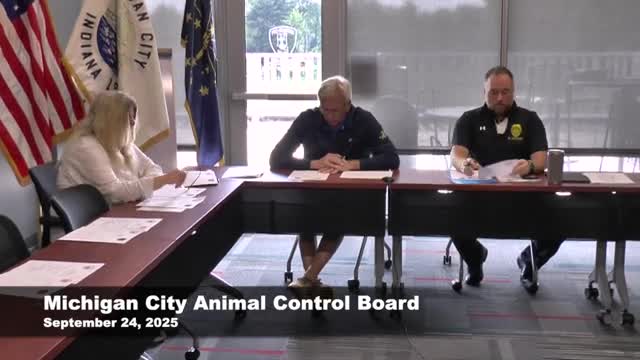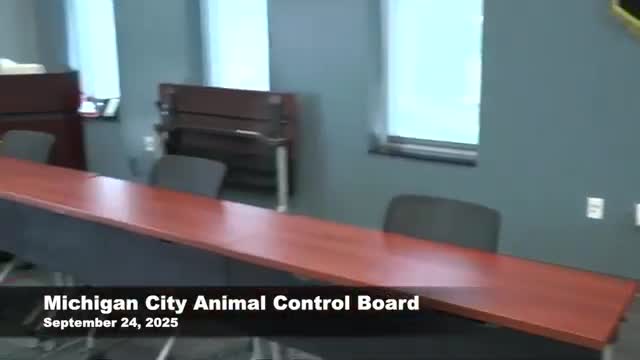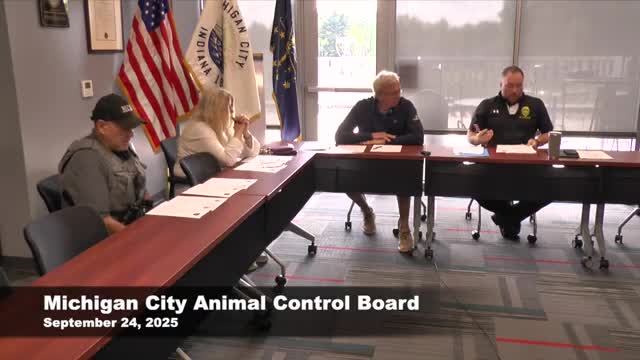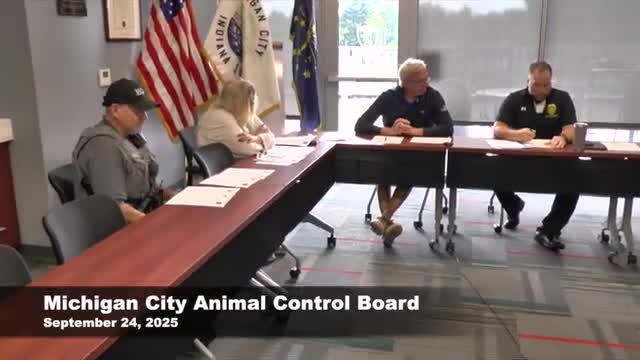Article not found
This article is no longer available. But don't worry—we've gathered other articles that discuss the same topic.

Michigan City board says kennel expansion work expected soon amid public concern over space and conditions

Michigan City board hears continuing strain on trap‑neuter‑return efforts as feral cat numbers rise

Board seeks additional part‑time support and ordinance change to reimburse outside kennels

